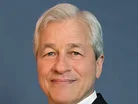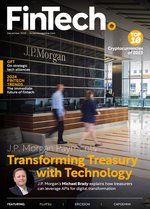
You could say that Jamie Dimon grew up in a banking dynasty, although not in the traditional sense. Born in New York City in 1956, both his father and grandfather worked in the city as stock brokers. His grandfather was Panos Papademetriou, later Dimon, who emigrated to the United States in the 20th Century, making his grandson a third-generation migrant. At first Papademetriou found work as a busboy in one of the city’s many restaurants, before landing a job at the Atlantic Bank of New York.
“My grandfather was fascinating,” Dimon would later recall to podcaster Miles Fisher. “He spoke six languages, he walked miles a day, and he read a lot.” This is something that Dimon has taken to himself, waking up early every morning to get started on new reading material.
Dimon says he learned a lot from his grandfather – not least, how to treat people fairly and how to stand up for right over wrong. He is a firm believer in the power and importance of so-called emotional intelligence, not just intellectual intelligence, and it has stood him in good stead for his career to date.
Vast experience in New York’s banking scene
Before becoming CEO at JPMorgan Chase in December 2005, Dimon was CEO of Bank One – one of the many mergers and acquisitions throughout JPMorgan Chase’s history. Indeed, the group today is built on the foundation of over 1,200 predecessor institutions, some of which date back to the late-18th and early-19th centuries.
When JPMorgan Chase acquired Bank One for US$58bn in 2004, it was a homecoming of sorts for native New Yorker Dimon, who had relocated to Chicago to lead the rival bank. He was appointed COO of the newly merged entity, with a timeline of succession that would see Dimon take up the CEO role.
Dimon had previously worked at Citigroup and was seen as a shoe-in for the CEO role there, before being usurped by Deryck Maughan, the protégé of then-Citigroup Chief Executive Sanford I. Weill, who had, in 1998, merged his Travellers Group with Citi for an even bigger sum than JPMorgan Chase’s buyout of Bank One two years later.
This illustrious background at some of America’s largest financial institutions, as well as close to two decades at JPMorgan, have obviously made Dimon a leading figure in the country’s banking scene. He regularly speaks out about issues affecting banks and businesses, named in Time magazine’s list of the 100 most influential people anywhere on planet Earth and amassing a fortune estimated at US$1.6bn.
Artificial intelligence ‘will add huge value’
His finger is still on the pulse of new developments in the American economy, telling Bloomberg earlier this year that the rise of artificial intelligence (AI) might lead to many Americans being able to enjoy more downtime.
“AI is real,” Dimon told Bloomberg’s Emily Chang, pointing out that thousands of computer scientists all around the world are already working on real-life applications. “Every single process – so errors, trading, hedging, research – every app and every database is going to be employing AI. It might be as a co-pilot, it might be to replace humans – for example, AI is doing all the equity hedging for us for the most part. It’s a little bit of everything.
“Technology has always replaced jobs. Your children will live to 100 and not have cancer because of technology, and they’ll probably be working three-and-a-half days a week. Technology has done unbelievable things for mankind, but planes crash and pharmaceuticals get misused,” he added, referring to the weaknesses in every new technology or advancement in society.
“There are negatives and one of the biggest negatives in my view is AI being used by bad people to do bad things. I do think eventually you’ll have legal guardrails around it. It’s kind of hard to do, because it is new. But it will add huge value.” He predicted that, within JPMorgan Chase, where AI replaces jobs, those people would be redeployed into other areas of the business.
A political candidacy in the making?
It’s no wonder, given Dimon’s shrewd thinking and his pedigree in New York’s business scene, that he’s often compared with the likes of Michael Bloomberg and Donald Trump. Both went into politics – albeit with different political styles and flavours that often clashed with each other.
Dimon himself has often been urged to run for US president, including most recently by the billionaire hedge fund manager Bill Ackman, although Dimon has often distanced himself from these suggestions. There’s no doubt that Dimon would be a popular choice among New York’s bankers and investment managers – but would he consider a run to be leader of the free world?
“I thought about thinking about [running for president],” Dimon previously told 60 Minutes cryptically. “But I talked to one person and I decided to think no more.” It was never revealed who the other party to that conversation was, but Dimon later clarified that he would “probably not” run for public office in future.
He has taken aim at political infighting and economic stagnation, but it’s clear how well a Dimon candidacy would compute in the minds of voters. In the run up to another sure-to-be fiercely contested election campaign, the idea is once again on the lips of political observers. Dimon is undoubtedly successful in his field and should earn the respect of the electorate, were he to run, but his style is probably not radical enough to secure the nomination of either of the two main parties. Besides, even at this early stage, the 2024 US Presidential Election looks like it will be a rerun of last time out with the same candidates, meaning there is no space on the ticket for someone like Dimon – not this time round, at least.


